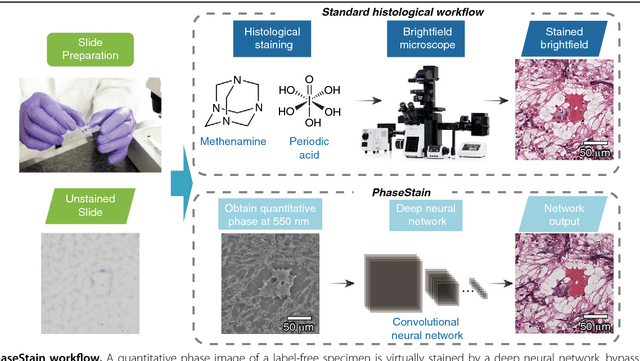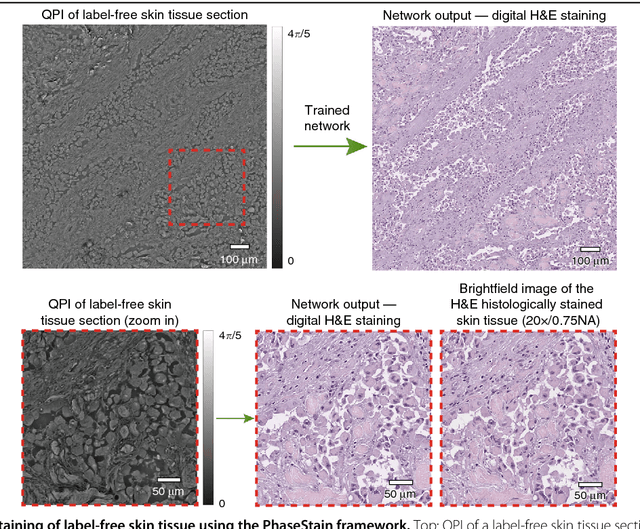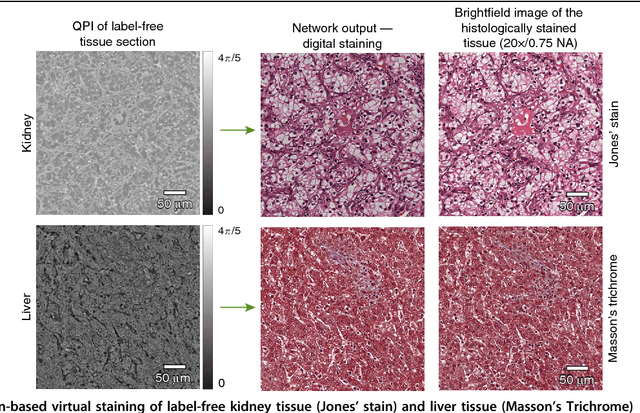PhaseStain: Digital staining of label-free quantitative phase microscopy images using deep learning
Paper and Code
Jul 20, 2018



Using a deep neural network, we demonstrate a digital staining technique, which we term PhaseStain, to transform quantitative phase images (QPI) of labelfree tissue sections into images that are equivalent to brightfield microscopy images of the same samples that are histochemically stained. Through pairs of image data (QPI and the corresponding brightfield images, acquired after staining) we train a generative adversarial network (GAN) and demonstrate the effectiveness of this virtual staining approach using sections of human skin, kidney and liver tissue, matching the brightfield microscopy images of the same samples stained with Hematoxylin and Eosin, Jones' stain, and Masson's trichrome stain, respectively. This digital staining framework might further strengthen various uses of labelfree QPI techniques in pathology applications and biomedical research in general, by eliminating the need for chemical staining, reducing sample preparation related costs and saving time. Our results provide a powerful example of some of the unique opportunities created by data driven image transformations enabled by deep learning.
 Add to Chrome
Add to Chrome Add to Firefox
Add to Firefox Add to Edge
Add to Edge